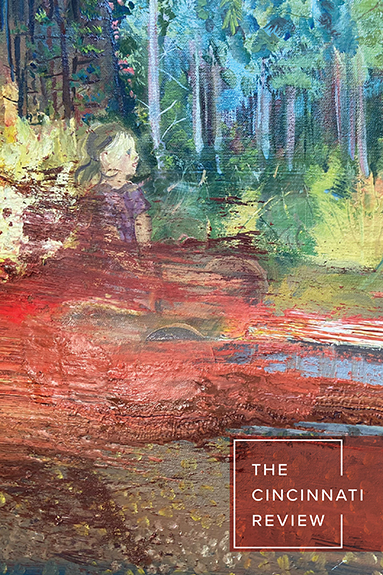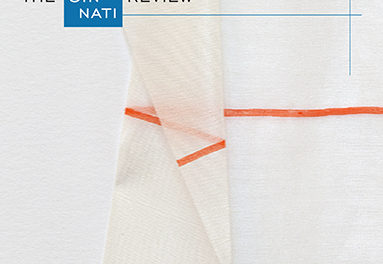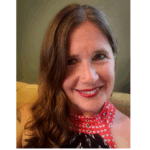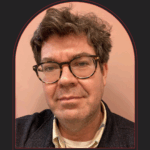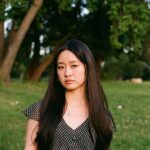Although I have now lived inside the ivory tower for longer than I ever lived outside it, my arrival first felt like exile. That immigration seems like a far more dramatic passage than my journey from South Korea as an infant adoptee, though certainly the latter has inspired more curiosity. But I have no memory of the Northwest Orient flight to JFK Airport in 1974, so the story that shapes me instead is this one:
When I first set foot on the quietly majestic campus of Swarthmore College, I quickly found that many of my peers and professors interpreted me in ways that rendered me unrecognizable to myself. In my rural hometown, named for the old cotton mill slowly moldering at its center, my face, though distinctively Korean, had been as familiar to my classmates as those of their own siblings. In our family lore, the story of the day I’d been found, hours old, on the streets of Seoul functioned as a rarely considered, grayed-out prologue to a Technicolor, toy-strewn, cake-scented American childhood.
But in the politicized atmosphere of college, students I barely knew had opinions on whether I was Korean enough (these were conveyed to me through my Korean American roommate, a member of the Asian club among whose members such things were discussed), or whether in trying to pass as American, I was making some callow attempt to ingratiate myself within an American culture they characterized by its colonialism, dominion, and violent history. My adoption itself was viewed unequivocally through this lens; I was even informed at one point by someone I’d just met that as an act of cultural imperialism, the adoption never should have happened. When I asked what should have happened to me instead, he shrugged. Not his problem.
My town, I learned, was “working-class” (didn’t everyone work, I wondered). In the eyes of my new peers, working-class origins might inspire a distant Marxist admiration, but the clothes we wore at home, fashioned of acrylic in bright primary colors, and the eye shadow and hot rollers and fragrant nimbus of hair spray we used to make ourselves up invited the understated scorn of the alternative crowd, where earth tones, natural fibers, and the occasional whiff of something suspiciously herbal prevailed. I did not even understand these two attitudes—the idealization and the mild contempt—as specifically contradictory; I only experienced them as two in a storm of shifting, bewildering pressures.
I loved college because I loved reading and thinking. I loved the friends I was making, who were, to a one, thoughtful and kind and funny and smart. But I was uncertain of what exactly college was educating me to become, and ambivalent about how much I wanted to change.
Every now and then, as a heated class discussion about esoterica sailed over my head, I recalled the dismissive voice of my father, a chemical-plant technician, part-time farmer, and woodworker, describing Philadelphia’s “skyscrapers twenty floors high with no loading dock. Inside they don’t make anything!”—and I contemplated my increasing optimization for a life that involved a lot of pointless arguments and produced nothing you could eat, wear, sit on, or load onto a forklift.
I did and did not want that air-conditioned existence, even as I felt myself evolving into a creature suited only for it. Although college provided a new vantage point on my home and my family and the values I had taken for granted, that estranging distance also incited an intense loyalty to the world I was leaving behind, like the tenderness astronauts say they feel for our blue sphere once they’ve gazed on it from afar.
I had grown up attending church in a more or less obligatory way, but in the midst of all this confusing stimulation, I began to locate through the quiet attention of prayer a fragile link between me and something that felt still and certain. While of course God was (or should have been) the object of my pursuit in prayer, I conceived of God as so distant, immense, and impersonal that what I sensed did not feel like I thought God would. I registered only that something in me stretched outward, the way I imagine an unborn baby might discover the cord attached to its umbilicus—feeling along its length and wondering, without even the words to do so, Oh wow, what’s this? It seems important.
* * *
Professors during this first semester were themselves as remote and unknowable as ancient deities—in one case, even as unnameable as one. On the first day of our introductory psychology seminar, the dignified, white-haired gentleman had looked mildly at the six of us gathered around the birch conference table and passed us copies of a syllabus identifying him as “Dean Peabody.”
Was he a dean or was that his name? Should I call him “Dean Peabody” or “Professor Peabody”? If he were a dean, I should definitely call him “Dean Peabody,” but if those were his first and last names, to do so would be both weird and overly familiar. But if I called him “Professor Peabody,” was I signaling some pointed disrespect—a demotion—when he had specifically given his title as “Dean Peabody”?
On that day, I introduced myself when asked to and listened and nodded and got by without calling him anything at all. Either by the same strategy or by chance, so did everyone else. Weeks passed this way. I dreaded the possibility that I might need to email him.
This confusion at least was superficial, and finally remedied when an acquaintance confirmed that my professor was Dean, not a dean. But on a deeper and more significant level, I did not know how to orient myself with regard to my professors. The admissions brochures had promised that my relationships with professors would be built on affinity, our shared passions, but my uncertainty of the etiquette governing such at-will relationships confounded me. I did not know how to initiate intimacy with these adults, an entirely novel species.
A year later, a professor would invite our literature seminar to an end-of-term dinner at his house, and when he stepped out of the classroom, one of the students asked the rest of us, slyly, “So, everybody name something you think we’ll see at Peter’s house.” While I thought of all the items common to every house I’d been in (a kitchen sink, a table and chairs, a couch) and wondered why anyone would ask this question, the other students chuckled knowingly. A bespectacled student I’ll call Abe said, “An ethnic tapestry.” “A teakettle,” someone else suggested. The student who had posed the question touched a finger to her lips and smirked. “I think . . . a piece of blue glass.”
When we arrived at the house, Abe nudged her and whispered, “There’s your blue glass.” And we all turned to see a blue bottle on a windowsill, next to a spider plant, within arm’s reach of a bentwood rocking chair.
To me the decor of the house didn’t quite make sense—there was something haphazard, even threadbare, about the furnishings, yet at the same time each object somehow communicated, “I am expensive.” Here, the preciousness of, say, a hand-thrown clay mug seemed to derive from its rough-hewn finish rather than perfection or gloss. I could no more have predicted a representative object in a house like this than I could have guessed the feeding habits of the giant squid or the elliptical movement of an uncharted star.
This uncertainty, this difference in values, I sensed as early as my first days at Swarthmore, and it incapacitated me. My relationships with high school teachers had been warm and even affectionate because of the distinct boundaries and mutual expectations evident to all: they were the adults, and I was the child. They created the rules, and I followed them. They dispensed knowledge, and I wrote it down.
Now I had to learn what sorts of things professors found worthy of interest or disdain, when it would be appropriate to disclose anything at all, what made for good-humored self-deprecation—and all of this while expressing an authentic self, one I wasn’t even sure I had discovered yet.
Consequently, I mainly tried to avoid the notice of my professors, an especially unworkable strategy in the German class that consisted of only me and one other student.
Professor Avery had invited us to meet in his office for our conversations. His kind avidity, his animated bushy eyebrows, his exclamations over things I said in class made me uncomfortable; I sensed his desire for me to love the obscure early-twentieth-century German and Austrian readings he had assigned. But to my dismay, I didn’t. I had imagined that college would introduce me in a systematic way to important literature, but the collection of photocopies he distributed seemed like a randomly selected hodgepodge of essays and criticism. I feigned interest but felt a gathering sense of dread about eventually disappointing him.
Even when he tried to reach out to me, his overtures had the opposite of the intended effect. One day, before the other student arrived, the professor told me, “This weekend, my daughter gave me a gift. When my wife and I opened it, inside was a baby rattle! I am going to become a grandfather.”
I congratulated him, and he continued, “My son said to my son-in-law”—he mimed elbowing someone with good humor—“at least you know you aren’t shooting blanks!’” He laughed with a “Ha! HA!,” percussive as a gunshot, and slapped his knee.
I forced a smile, but I was stricken. My professor was talking to me about sperm. Ejaculation. What could I possibly say to that?
I could not read what was in fact a sign of his comfort and openness, his interest in treating students like adults and peers. I would never have dared to think of myself as his peer. Years later, I would read an article by a National Book Award–winning novelist who had studied with the same professor, in the same booklined office, and found him electrifying. The novelist had thrived under the same attention that I found so mortifying; where he had been inspired toward a career as one of America’s greatest living novelists (per Time magazine), I felt only darkly suspicious that with such hearty enthusiasm, my professor had grossly overestimated my abilities.
* * *
That semester in English, the field I actually wanted to study, I inspired no such confidence and succeeded in avoiding notice—in fact, the written report from that class (which we received in lieu of grades for our first semester) is simply blank, the only one I received with no comments at all.
I’d been interested in the course because the description invited us to consider the reasons why we study literature. It was an introduction to literary theory, and as in the German class, the readings did not fit together in any sort of pattern that I understood, though I had at least heard of the authors.
We read the Hemingway short-story collection In Our Time. The stories, each about a paragraph long, reported more or less the following: a group of soldiers were drunk. They were scared. There was a lot of mud. They lined some people against a wall. They shot them.
Then we came upon a slightly longer story, where several events happened over a couple of pages: A soldier was in the hospital with a wound. He met a girl and intended to marry her. The girl met an Italian. The soldier did not marry the girl. Neither did the Italian. The story concluded “A short time after he contracted gonorrhea from a sales girl from The Fair riding in a taxicab through Lincoln Park.”
These stories felt to me like a series of depressing non sequiturs, offering neither the utility of detailed reportage nor the solace of beauty. I assumed that the stories had merit, that their delicate architecture could support some kind of meaning, but I could not enter them in the way one of my classmates could.
She visibly thrilled to the literature. In the large circle we made with our twenty desks, she raised her hand for every question posed by our reticent, soft-spoken professor, who bent over her book through the entirety of the class so that what I saw of her day after day was the pale part down the center of her dark hair.
It seemed odd to me that the professor, the person with the greatest knowledge about the text, seemed least willing to tell us what she thought, but then, my classmate’s volubility rendered it less necessary: “I think what I want to say is—I want to suggest that Hemingway’s use of the name Luz, which is Spanish for light, reflects—ha ha—the brilliance of the woman in the darkness of war for him.” She paused, twirling a pencil between her long fingers. “But, as we all know, the sound of the name also suggests a loss, like lose.”
Heads nodded; pens moved across the pages of spiral notebooks. I was relieved that she lifted from the rest of us the burden of participating. Still, I realized that I’d have to plan to talk in class and raise my hand if I had even an inkling of an idea. I would have preferred total passivity, but I feared failing the class even more.
I did not see my feelings about Hemingway as a “response” to the literature worth articulating, and while there might have been an acceptable way of expressing my dislike of the text in the form of a question—“Hemingway’s minimalism makes it hard to have an affective response. Is that the point?”—I could as soon have formulated that question as I could have grown another, more-educated head by sheer force of will. My resistance felt like (was?) a failure of my own, a sign of my lack of insight, and I did not know yet that the classroom could be a place to explore or address that failure. I knew only that I needed to figure out everything from scratch.
* * *
Although I did not know it at the time, I was beginning to find what I sought when I went every day at 5:00 p.m. to the most unlikely of campus spaces, the barely finished basement of Bond Hall. After classes and studying each afternoon, I approached Bond’s shadowed stone arches that framed windows lit warm yellow.
The heavy Gothic door opened onto a bright parlor, with a baby grand piano and Queen Anne sofas arranged in their mincing way before the fireplace. I didn’t walk forward into that formal space, though—I turned instead to a dark little staircase in the corner that led to a storage area, a seldom-used bathroom, and a long, narrow hallway.
At the end of the hall, a flimsy hollow-core door opened into a low-ceilinged room appointed with what were obviously decades-old castoffs: a couple of couches upholstered in worn chartreuse jacquard, some bookcases sagging with long-abandoned titles, and a round table in a corner that I saw used only once, by a campus visitor. In this little room, with its distinctly uninspired furnishings, the Swarthmore Christian Fellowship met every weekday for prayer.
What I recall about these meetings is not a distinct event, and while it feels like a failure in this telling that I cannot describe the first one I attended, it also feels like a truth to say that what was important was the series of them, day after day after day. The way it structured my habits and then my interior world, to come every day to this place and do the same thing with whoever else showed up. The routine ordinary of it all.
When I walked through the door, I might find one of my friends sprawled on the couch asleep, backpack on the floor. These couches were astonishingly comfortable in a collapsing kind of way, and they were also long—a number of the guys were over six feet tall, and they could stretch out lengthwise. The sleeper would awake and sit upright, and a couple more guys would enter, mid-conversation, heads almost brushing the doorframe’s low lintel. A trio of young women, laughing, next. Whoever was the day’s leader would eventually ask for prayer requests.
Most days there would be a few seconds of thoughtful silence, and then someone would say, “I’d like prayer because my dad is having some tests done on his heart.” “My thesis, because I really, really need to figure out what I’m doing.” “If you guys have been reading the news, we should pray for what’s going on in Rwanda.” “I need wisdom.”
The specific requests weren’t particularly instructive in the art of prayer; it was the way the room settled when the question was asked. The settling wasn’t serious or heavy, the way a classroom quiets down when a teacher walks in—no sense of behaving for an audience, as I might have thought prayer would require.
The guys who’d been joking around weren’t quieted in the way young men are when someone shushes them, with suppressed humor and mock seriousness. Neither were they actually humorless.
What they were was tenderly focused, on both the person who was speaking and on something inside themselves. There was no attention to race, or citizenship, or class, or ideology, or talent.
There was listening to each other, and listening to the space around each other. Listening to what was beneath the words as requests were spoken, and then in the few minutes before prayers began to be spoken aloud, learning to listen for words to speak insight or blessing.
In classes, I was hearing that the Christian trope of God-as-father was a patriarchal construct from which I should liberate myself, but it did not seem a bad thing, in those moments, to be a loved child. However geopolitically complicated the circumstances of my entry into my family, I had been that before. I was that.
The quiet was what I would now describe as holy, both in its seriousness and in its lightness. We sat with our heads bowed, people speaking up to pray until everyone had been prayed for, and then the leader ended with a sentence or two and an amen and we all stood up and ambled over to dinner together, high-spirited again, the paths lit by the shine of the lamps.
In my life outside that room—in my dorm, the library, the classroom, in all the places I yearned for it—I became aware of a delicate certainty, not of God specifically but of the interior space in which I might find God, the way I scanned for stations on the radio of my old car, twirling the knob so fast that nothing was clear, just static zipping past and maybe a flash of a voice. Then going back and so slowly trying to find the place where the sound became language and, unaccountably, the air around me no longer felt uninhabited.
The space on the dial opened up from a hairbreadth to an inch. I moved toward and then through that small aperture, and from there stepped out into the rest of my life.
For more literary nonfiction in Issue 21.2, order now in our online store. Digital copies are only $5.
Tara Fee is a professor of English at Washington & Jefferson College in Washington, Pennsylvania, where she teaches courses on American literature, including Asian American literature and the memoir. Her essays have been published in Mosaic, ESQ: A Journal of Nineteenth-Century American Literature and Culture, NANO: New American Notes Online, and the New York Times.

